Introduction
How Long Can A Guinea Pig Go Without Food: Guinea pigs, scientifically known as Cavia porcellus, are herbivores with specific dietary requirements. Their natural habitat in the Andes Mountains of South America has endowed them with a unique digestive system and nutritional preferences. In the wild, guinea pigs forage for a variety of fresh vegetation, including grasses, leaves, fruits, and vegetables. This diet provides them with essential nutrients, particularly vitamin C, as guinea pigs, like humans, cannot synthesize this vitamin and must obtain it from their diet.
One of the most crucial factors in determining how long a guinea pig can go without food is their metabolic rate. Unlike some animals that can go for extended periods without eating, guinea pigs have a relatively fast metabolism. This means they require a consistent supply of nutrients to maintain their health. Depriving them of food for an extended period can lead to various health issues, including malnutrition, weakened immune systems, and even death.
In general, guinea pigs should not go without food for more than 12 hours. Their digestive systems are continuously active, and prolonged fasting can disrupt their delicate balance of gut bacteria, leading to digestive problems. A lack of food can cause rapid weight loss and muscle atrophy in guinea pigs, which can be irreversible in severe cases. Guinea pigs are creatures of routine, and they rely on their owners to provide consistent access to fresh food, clean water, and a clean living environment. When planning to be away from your guinea pig for an extended period, it’s essential to arrange for a responsible caregiver to ensure their dietary needs are met.
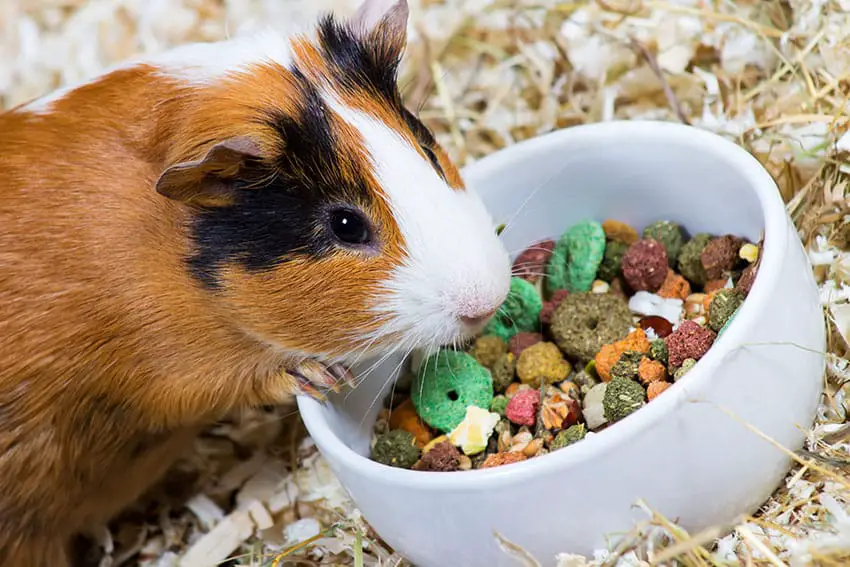
How long can guinea pigs go without food and water?
Guinea pigs can go up to 12 hours without water, less if the piggy is senior, sick, pregnant, or living in hot conditions. Some guinea pigs can go up to 24 hours, but this is usually accompanied by dehydration and related side effects. Guinea pigs can go into GI stasis in as little as 6-8 hours without eating.
Food: The Lifeline for Guinea Pigs
Guinea pigs are herbivores, and their diet mainly consists of fresh hay, fresh vegetables, and high-quality guinea pig pellets. They require a consistent and nutritious food supply to maintain their health. Unlike some animals, guinea pigs cannot store food reserves in their bodies, which makes their need for regular meals more critical.
Food: How Long Can They Go Without
Guinea pigs are not well-equipped to endure extended periods without food. In fact, they have a sensitive digestive system that requires a constant supply of fiber to function correctly. If a guinea pig goes without food for just 12-24 hours, it can lead to serious health issues, including gastrointestinal stasis. This condition can be life-threatening and requires immediate veterinary attention.
Water: Essential for Survival
Water is just as crucial for guinea pigs as food. Their bodies are composed of approximately 80% water, and they need it for various physiological processes, including digestion and temperature regulation.
What happens if a guinea pig doesn’t eat for 24 hours?
Small animals such as guinea pigs can be badly affected by just a single day without food, as their bodies are constantly digesting to get out all the nutrients. This can lead to drastic weight loss and further health complications, so it’s crucial that you catch the issue quickly and treat it.
Weight Loss
Guinea pigs have a rapid metabolism and need a constant intake of calories to maintain their weight. When they don’t eat for 24 hours, they begin to lose weight rapidly. This weight loss can weaken their bodies and make them more susceptible to illnesses.
Weakened Immune System
A well-balanced diet is essential for a guinea pig’s immune system to function optimally. The lack of food intake weakens their immune system, making them more vulnerable to infections and diseases.
Stress and Behavioral Changes
A guinea pig that isn’t eating can become stressed and anxious. They may exhibit changes in behavior, such as increased restlessness, hiding, or vocalizing. This can further exacerbate their overall well-being.
Can I leave my guinea pig alone for 7 days?
Although some websites suggest that it’s okay to leave your guinea pigs alone for a weekend, we recommend that you don’t. Should work or family commitments come up that need you to be away from your piggies for 24 hours or more, you need to plan accordingly.
Food and Water
Guinea pigs have a high metabolic rate and require a consistent supply of fresh food and water. Leaving them without access to these essentials for an extended period can have serious consequences on their health. It’s essential to ensure they have enough food and water to last the duration of your absence.
Social Interaction
Guinea pigs are highly social animals that thrive on companionship. Leaving them alone for 7 days can result in loneliness and stress.
Monitoring Health
Guinea pigs can become ill or injured, and early detection is crucial for their well-being. Leaving them unattended for an extended period without someone to monitor their health can be risky.
Can guinea pig go 3 hours without water?
A healthy guinea pig may be able to survive up to 24-48 hours without water. However, they can become dehydrated much sooner than this and may suffer from severe health problems as a result.
Hydration Needs of Guinea Pigs
Water is essential for the survival and health of guinea pigs, as it is for all living creatures.
Can Guinea Pigs Go 3 Hours Without Water
Guinea pigs typically cannot go without access to water for three hours without experiencing some level of discomfort or potential health issues. While they do obtain some moisture from their food, it’s not sufficient to sustain them over such a short duration, especially if they are active or the weather is warm.
Risks of Dehydration
Leaving a guinea pig without access to water for an extended period can result in dehydration, which can have serious consequences.
Do guinea pigs need to eat all day?
Like most herbivores, guinea pigs are essentially grazers. They eat all day! That means it’s important to keep fresh hay and grass available constantly.
Natural Eating Patterns
In the wild, guinea pigs are herbivores, primarily grazing animals. Their natural habitat consists of grassy plains, where they spend a significant portion of their day foraging for food. Consequently, guinea pigs have evolved to eat frequently and in small amounts throughout the day and night.
Constant Access to Hay
Fresh hay should be available to guinea pigs at all times, as it serves as a primary component of their diet. Hay not only provides essential nutrients but also promotes healthy dental wear and aids in preventing obesity.
Daily Fresh Vegetables and Pellets
Guinea pigs require a daily supply of fresh vegetables and high-quality guinea pig pellets. These should be provided in moderate portions to ensure they receive a balanced diet. However, guinea pigs should not be overfed, as obesity can lead to various health issues.
Avoiding Overfeeding
While guinea pigs graze and nibble throughout the day, it’s essential to monitor their food intake to prevent overfeeding. Overfeeding can lead to obesity, dental problems, and digestive issues. Pay attention to your guinea pig’s individual needs and adjust their food portions accordingly.
Water Intake
Guinea pigs also need constant access to fresh, clean water. Dehydration can be a severe concern for guinea pigs, so ensure their water supply is always available and regularly checked.
How many times do guinea pigs need to eat a day?
About 1/8 cup of pellets once a day—supplemented by hay and fresh vegetables as described below—will be enough. Timothy hay: Provide an unlimited quantity of fresh timothy hay every day. Guinea pigs need continuous access to hay to aid their digestion and limit the growth of their teeth.
Grazing Behavior
Guinea pigs are natural grazers, and their digestive systems are adapted to frequent, small meals throughout the day and night. In the wild, they spend a significant portion of their time foraging for food, primarily grazing on grasses.
Continuous Access to Hay
The cornerstone of a guinea pig’s diet is fresh hay, which should be available to them at all times. Hay provides essential fiber, nutrients, and aids in dental health. Guinea pigs will nibble on hay throughout the day, and it is essential to keep their hay rack or manger stocked to meet their grazing needs.
Fresh Vegetables
Guinea pigs require daily servings of fresh vegetables. Fresh veggies offer vital vitamins and minerals to their diet. They should receive a portion of vegetables once a day, typically in the evening. Examples of suitable vegetables include leafy greens like kale, spinach, and romaine lettuce, as well as bell peppers, carrots, and cucumbers. It’s essential to provide a variety of vegetables to ensure a well-rounded diet.
Pellets
High-quality guinea pig pellets can also be part of their daily diet. However, pellets should be fed in moderation to prevent overeating and obesity. A small serving of pellets once a day is usually sufficient. Make sure the pellets are specifically formulated for guinea pigs, as they have different dietary requirements than other rodents.
Should I force feed my guinea pig?
For some guinea pigs it is better to give a small amount of CCH (10-15 ml) every hour than trying to force a large amount (30-50 ml) three or four times a day. You do not have to assist feed your guinea pig between 11 pm and 7 am unless you want to try to do so.
Vet Recommendation: Always consult with a veterinarian who specializes in exotic pets if your guinea pig stops eating. They can diagnose the underlying issue and recommend appropriate treatment.
Critical Health Condition: In cases of severe illness or surgery recovery, force-feeding may be necessary to ensure your guinea pig receives essential nutrients.
Temporary Appetite Loss: If your guinea pig experiences a temporary loss of appetite due to stress or minor illness, syringe-feeding small amounts of a specially formulated recovery food may be your vet.
Stress: The process of force-feeding can be stressful for guinea pigs and may exacerbate their condition if not done correctly.
Injury: Incorrectly administered force-feeding can result in injury to your guinea pig, particularly if the feeding syringe damages their mouth or throat.
Digestive Issues: Overfeeding or using an inappropriate diet can lead to digestive problems, further complicating their health.
Underlying Condition: Force-feeding should not be a substitute for addressing the underlying health issue. It is essential to treat the primary cause of appetite loss.
How do I know if my guinea pig is starving?
Wheeking is the sound a guinea pig makes when it is hungry so don’t be surprised if the wheek around the time you usually feed them or if they see you bringing some food. Wheeking is something that’s exclusively directed towards humans.
Inspect Their Teeth
Malocclusion, a condition in which the teeth do not align correctly, can lead to appetite loss as it becomes painful for the guinea pig to eat. Check your guinea pig’s incisors for overgrowth, misalignment, or signs of dental issues.
Seek Veterinary Care
If you suspect your guinea pig is starving or experiencing appetite loss, it’s essential to seek immediate veterinary care. A veterinarian experienced in treating small animals like guinea pigs can perform a thorough examination, diagnose the underlying cause, and recommend appropriate treatment.
Common causes of appetite loss in guinea pigs include dental problems, gastrointestinal issues, infections, pain, and stress. Addressing the root cause is crucial to your guinea pig’s recovery and overall well-being.
Malocclusion, a condition in which the teeth do not align correctly, can lead to appetite loss as it becomes painful for the guinea pig to eat. Check your guinea pig’s incisors for overgrowth, misalignment, or signs of dental issues.
Inspect Their Teeth
Malocclusion, a condition in which the teeth do not align correctly, can lead to appetite loss as it becomes painful for the guinea pig to eat. Check your guinea pig’s incisors for overgrowth, misalignment, or signs of dental issues.
Seek Veterinary Care
If you suspect your guinea pig is starving or experiencing appetite loss, it’s essential to seek immediate veterinary care. A veterinarian experienced in treating small animals like guinea pigs can perform a thorough examination, diagnose the underlying cause, and recommend appropriate treatment.
Common causes of appetite loss in guinea pigs include dental problems, gastrointestinal issues, infections, pain, and stress. Addressing the root cause is crucial to your guinea pig’s recovery and overall well-being.
If you suspect your guinea pig is starving or experiencing appetite loss, it’s essential to seek immediate veterinary care. A veterinarian experienced in treating small animals like guinea pigs can perform a thorough examination, diagnose the underlying cause, and recommend appropriate treatment.
Common causes of appetite loss in guinea pigs include dental problems, gastrointestinal issues, infections, pain, and stress. Addressing the root cause is crucial to your guinea pig’s recovery and overall well-being.
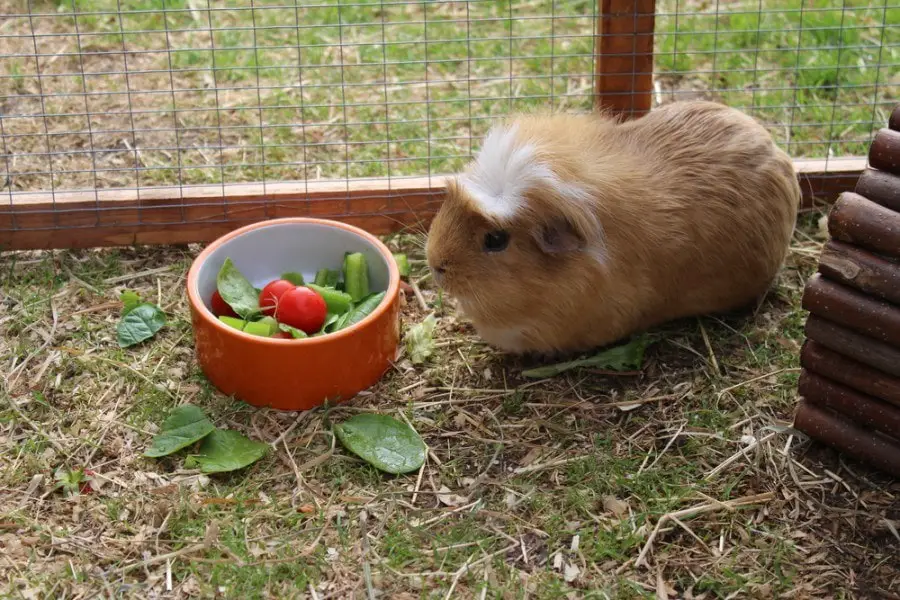
Conclusion
Guinea pigs are inherently fragile when it comes to their dietary needs. Unlike some animals that can endure extended periods without food, guinea pigs have a digestive system that operates continuously. Their rapid metabolism necessitates a consistent supply of nutrients to thrive. When deprived of food for more than 12 hours, guinea pigs can experience a cascade of health issues, ranging from malnutrition to a weakened immune system and, in severe cases, even death.
To recognize that guinea pigs have evolved in a manner that makes them creatures of routine. They depend on their human caregivers for sustenance, clean water, and a hygienic living environment. Neglecting these essential responsibilities can have dire consequences for their health and well-being. To ensure the health and happiness of your guinea pig, it is imperative to provide a balanced diet rich in fresh vegetables, hay, and pellets. Consistency in feeding times and quantities is equally. When planning to be away from your pet, arranging for a trustworthy caregiver is a non-negotiable aspect of responsible guinea pig ownership.
While guinea pigs are delightful and lovable companions, they are also entirely reliant on their human caretakers for their dietary needs. The answer to the question of how long a guinea pig can go without food is clear: no longer than 12 hours. Recognizing this limitation and committing to their daily care ensures that these wonderful creatures can live long, healthy, and happy lives as cherished members of our households. Responsible guinea pig ownership involves more than just affection; it involves a steadfast commitment to their well-being through proper nutrition and care.

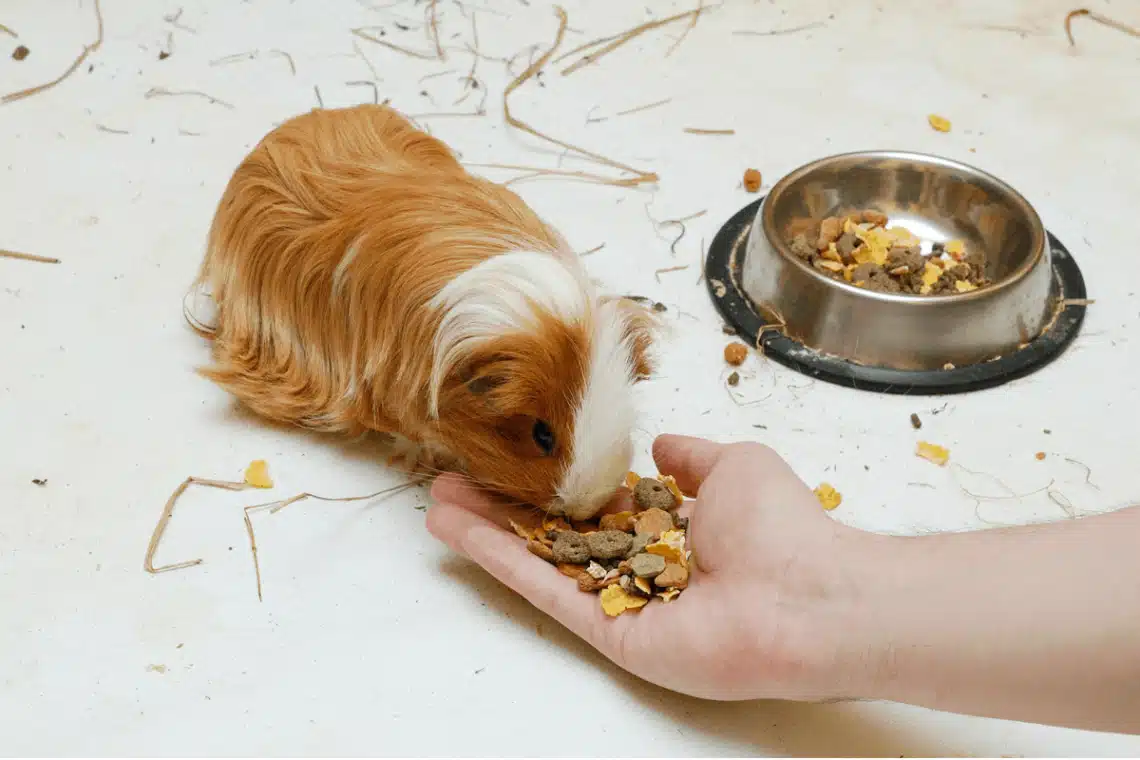
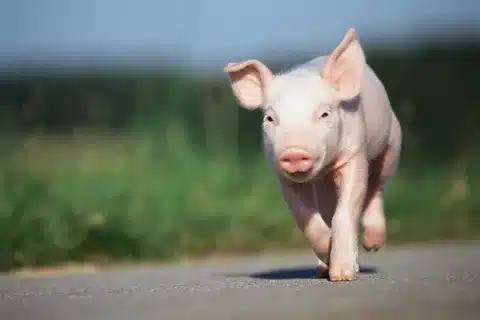

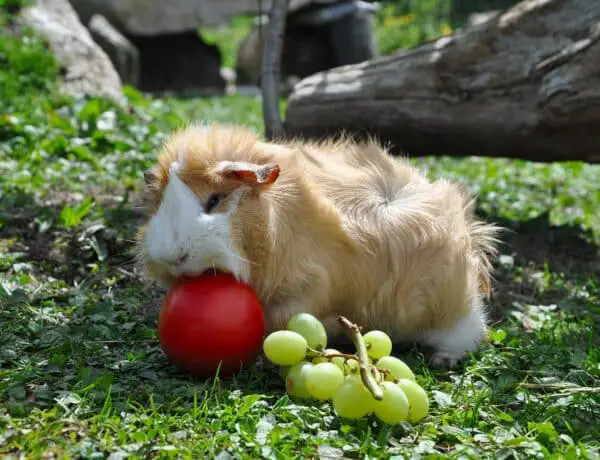
No Comments